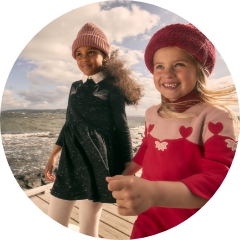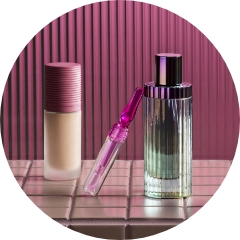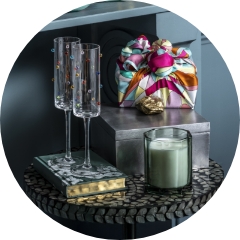Baby shower mania
We all know that birthdays, weddings and religious holidays are some of the biggest occasions we celebrate, but more recently, baby showers, pregnancy reveals and other pre-birth celebrations have well and truly gatecrashed the party.
TK Maxx polled more than 2,000 people (aged 16+) across the UK to discover how parents and non-parents feel about new baby presents.
So, have we gone gaga for baby gifts?
- Almost half (47%) of 25-34-year-olds said they (or their partner) have attended a baby shower.
- These younger millennials were also the most likely to have attended a pregnancy reveal (29%), gender reveal (33%) and a mother’s blessing ceremony (25%).
- People in Brighton are the most likely (35%) of any city to have attended a baby shower. Meanwhile, residents in Belfast and Liverpool were the likeliest (20%) to say they’ve attended a pregnancy reveal party.
- Baby clothes are the most popular gift for a pre-birth celebration – 58% of respondents. Males were keener than females on buying toys – 37% versus 34%.
- The average amount spent on a gift for a baby shower (or similar event) was £102.91. This reached a high of £147.66 in Greater London.
The rise (and rise) of baby showers
We’ve been celebrating new baby announcements since the days of ancient Rome, Greece and Egypt. The modern baby shower has its roots in 1930s America, and as our survey suggests, it’s a tradition that’s being embraced by rising numbers of Brits. Us, copycats? Never.
Here’s what we discovered:
- Modern parents are no strangers to baby showers. Almost half (46%) of parents with children under 18 have gone to a baby shower, while 34% have hosted one themselves.
- And it’s not just parents getting in on the act. More than a quarter (27%) of people overall said that they (or their significant other) have attended a baby shower.
- Times are changing. While just 15% of people aged over 55 have been to a baby shower – and only 2% have organised one themselves – the younger generations are leading the change. Nearly half (47%) of 25-34-year-olds said they’ve attended a baby shower (or their partner has).
The baby shower boom has officially taken off across the UK. In our survey, Brighton was the city where people were most likely (35%) to have attended a baby shower, followed by Belfast (33%).
And we found gender differences in terms of who gets an invite (or turns up!). 30% of females told us they’d attended a baby shower, compared to 25% of males.
More ways to celebrate
Baby showers are a big deal for some, but they’re far from the only type of pre-birth party. Our survey looked into some of the other ways we like to celebrate the impending arrival of a new bundle of joy.
Our survey suggests that younger millennials are the generation who are most familiar with pre-birth parties. As with baby showers, 25-34-year-olds were the most likely age group to attend a pregnancy reveal (29%), gender reveal (33%) or mother’s blessing ceremony (25%).
And this time, we found that males were more likely to say they’ve attended some of these celebrations.
Overall, how likely are Brits to host or attend a baby-themed bash?
- People in London and Leeds were the most likely to say they’d hosted a gender reveal party (18%), while Belfast residents were the likeliest (25%) to have attended one.
- Residents in both Belfast and Liverpool were the most likely (20%) to say they’ve attended a pregnancy reveal party. Londoners were the likeliest to have hosted one – 18%.
- Glasgow residents were the most likely (16%) to say they’ve hosted a mother’s blessing ceremony, while people in Belfast were the likeliest (18%) to say they’ve been to one.
The perfect pre-birth pressie
For many occasions, most of us have a rough idea of the presents we love to give and receive. Birthdays? Wedding gifts? Anniversaries? Piece of cake. But knowing what to buy for an unborn child – or their expectant parents – is perhaps more of a pickle.
Baby clothes were the most popular gift purchase among males (51%) and females (63%). But males were keener than females on buying toys – 37% versus 34% – and expressed more of a preference for buying big items like prams (26% versus 18%).
For older millennials, it’s all about the gift cards. 35 to 44-year-olds were the most likely age group (40%) to buy gift cards as a pre-birth present.
Others prefer the personal touch. In the north-west of England, 37% opted for personalised gifts – the highest of any region – including 35% of Manchester residents.
However, Norwich topped the list of cities for personalised gifting. 45% of people in Norfolk’s county town like to buy personalised gifts, such as onesies with a baby’s name on it.
Budgeting for baby gifts
Naturally, a thoughtful baby gift doesn’t just drop from a stork in the sky. So how much are we willing to splurge on these adorable new arrivals?
While many people buy presents in the £20-50 range, the average amount spent on a gift for a baby shower (or similar event) was £102.91. The average figure is boosted by the small minority of people who fork out £500-plus; in fact, one respondent even claimed to have spent a jaw-dropping £5,000 on a pre-birth present.
Attitudes are changing, and the spending figures for younger generations suggest that Gen-Z are eager to support events like baby showers and pregnancy reveals. 16-24 year-olds said they spend an average of £145.64 – the highest of any age group – on pre-birth presents, compared with £35.83 among over 55s.
Across the UK, people in Greater London had the highest average spend on pre-birth gifts (£147.66) while Northern Ireland had the lowest (£49.30).
The baby shower boom
Pre-birth celebrations are becoming more popular in the UK – and not just among first-time parents.
In fact, 35% of parents with more than one child told us they organised the same celebrations for each of their children.
And some parents even regret not partying the first time round. 15% of parents with more than one child said they didn’t have a celebration for their first child, but they did for the children that followed.
While there are differences across the generations, and by gender and geography, one thing’s for sure – the baby shower boom is here to stay.
















